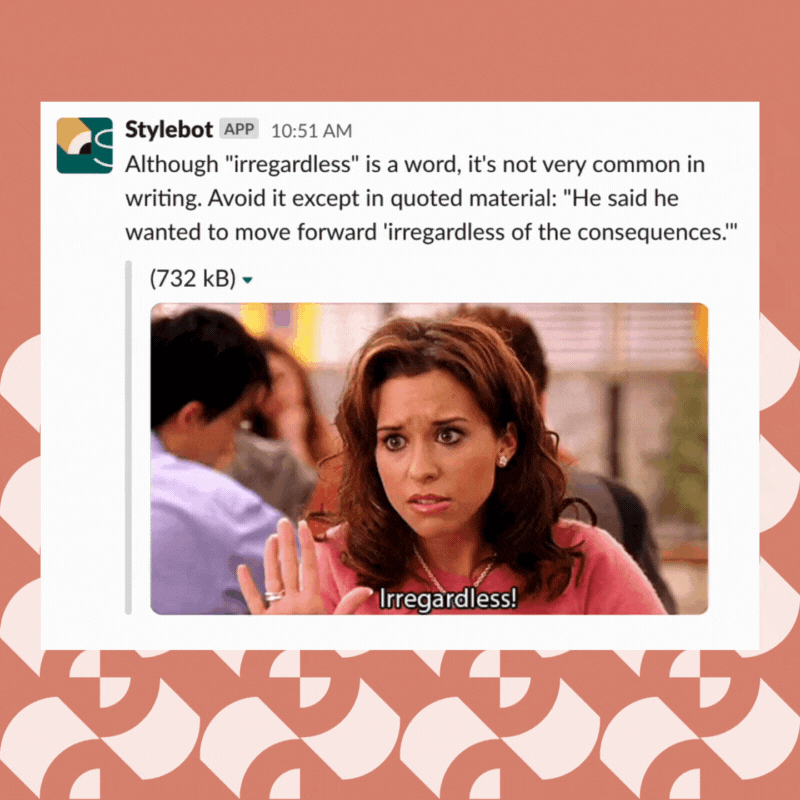Here at Stylebot, we’re not above taking inspiration from the movie “Mean Girls.” We even have guidance on how to write “Mean Girls” Day. (Spoiler alert: We recommend writing it just like you see it in the previous sentence.)
It’s all part of our philosophy that while writing and editing are serious endeavors, we can add a little levity to the process — and acknowledge that the driving force behind the evolution of a language is simply how people use it.
So even though Gretchen Wieners wasn’t able to make fetch happen, we’ll note that she was well within the bounds of documented English usage when she used the word irregardless.
Thought to be a portmanteau of “irrespective” and “regardless,” “irregardless” has been around for more than a century and may go back as far as 1795. Although it clearly has staying power in our speech, it might not do you any favors in formal writing: Merriam-Webster classifies irregardless as “nonstandard,” and the latest edition of Garner’s Modern English Usage calls it “widely shunned.”

Regardless of your view of “irregardless,” you can now confidently win any debate about whether it’s a word, while still sticking to its shorter alternative in your writing.
For more writing tips, check out our new guide on four common words you might want to stop using.
💬 Need more tips?
Want to get writing tips like these on demand? Try Stylebot for free.
📝 About Stylebot
Stylebot helps media professionals save time without sacrificing quality by answering editing questions on Slack, Microsoft Teams and Google Chrome. We’re on a mission to make editing faster, easier and more fun ✨ Learn more about Stylebot or follow us Instagram, X or LinkedIn.
